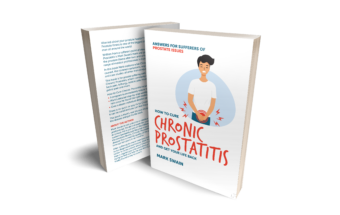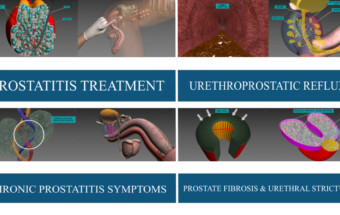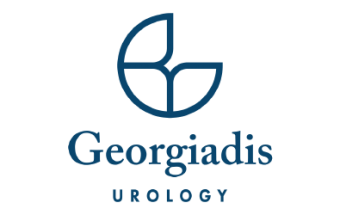Future of Prostatitis & Artificial Intelligence

Bringing AI to the Prostatitis Problem
In the 21st century, we have witnessed remarkable advancements such as DeepMind’s AlphaFold, OpenAI’s ChatGPT, Moorfields’ AI-augmented OCT, among numerous others, particularly in the fields of text and image processing. In the realm of Medicine, Artificial Intelligence (AI) tools are widely employed for cancer detection, predominantly in the field of Radiology, with the aim of reducing human error and improving objectivity. However, when it comes to addressing chronic inflammation of the prostate, also known as prostatitis, it is surprising to note that the prevailing benchmark in the majority of academic papers, even those published in esteemed peer-reviewed journals, remains a questionnaire known as the NIH-CPSI, which was introduced in the previous century.
Why are objective benchmarks less prevalent in prostatitis research?
In our view, this disparity can largely be attributed to the requirements and challenges associated with objective examinations. Objective assessments necessitate costly equipment, specialized training, and contend with a multitude of variables that hinder reproducibility.
For instance, implementing objective imaging criteria like high-quality Transrectal Ultrasound (TRUS) with elastography can prove prohibitively expensive for widespread adoption. Moreover, this technique demands expertise in both radiology and urology. Microbiological findings, unless stringent conditions are met, may lack reliability. Additionally, while examinations such as CT scans and MRIs are invaluable for cancer detection, their utility in evaluating prostate inflammation is comparatively limited.
Objectivity in Diagnosis & Treatment of Prostatitis
In our specialized treatment protocol for prostatitis, the precision of objective examinations holds immense significance. These examinations provide crucial guidance on the course of action, necessary adjustments, and when treatment can be concluded, enabling us to achieve long-lasting results without relapse.
However, what about the broader global community?
Each year, we receive thousands of inquiries and requests from patients worldwide seeking to replicate our diagnostic and treatment protocols with local practicioners. Regrettably, we have consistently explained that the empirical aspects of our protocol are not easily replicable or teachable. The intricate variations in inflamed prostates cannot be adequately captured with a few synthetic tissue models, commonly referred to as “phantoms”. Furthermore, the nature of accessing the prostate through the rectum restricts patient appetite for palpation by multiple doctors.
The empirical and haptic knowledge gained through decades of experience with prostatitis cannot be readily transferred. Or can it?
Georgiadis Urology & Academia
In 2022, Georgiadis Urology made a resolute commitment to utilize its resources, expertise, and experience to address the global challenge of prostatitis by contributing in research for accessible and affordable data-driven solutions for diagnosis and treatment. The primary objective is to introduce objectivity across various diagnostic and therapeutic protocols, including prostate palpation, specialized ultrasound devices, and other tools that can alleviate patient symptoms (such as pelvic pain, erectile dysfunction and prostate hyperplasia).
The ultimate mission is to make prostatitis a curable disease worldwide within our lifetime.
To achieve this ambitious goal, Georgiadis Urology explored collaborations with renowned medical engineering teams from esteemed institutions such as University College London (UCL) and Imperial College. Ultimately, the academic collaboration commenced through a consultancy agreement via UCL Consultants (UCLC), with the aim of developing solutions that effectively capture Dr. Georgiadis’ extensive haptic experience and translate it into technology that can be easily replicated by non-specialists.
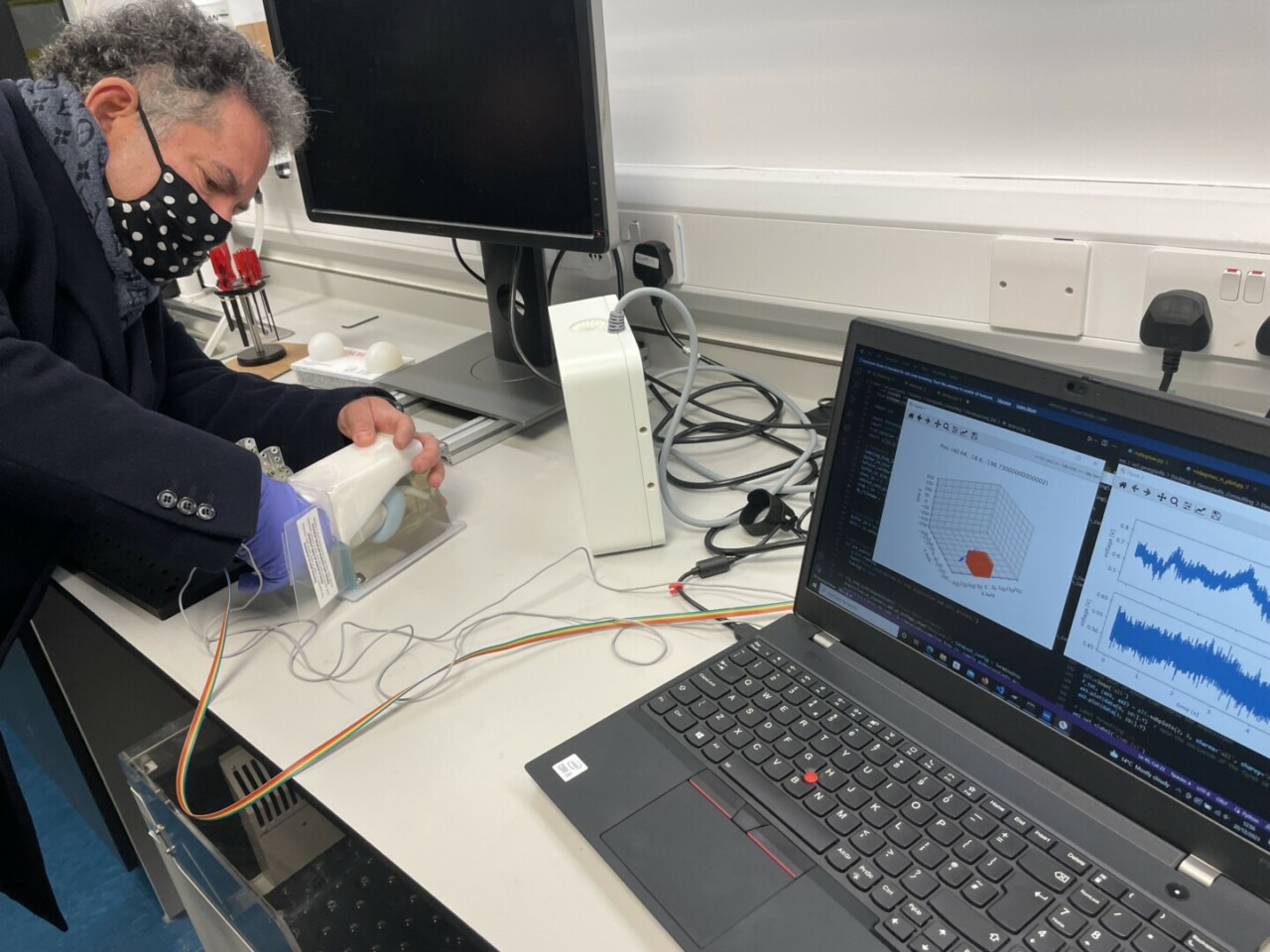
Dr. Pavlos Georgiadis applying clinical-level prostate pressures on a phantom, while wearing a sensorized haptic glove. Movements, tissue stiffness and applied pressure are measured.
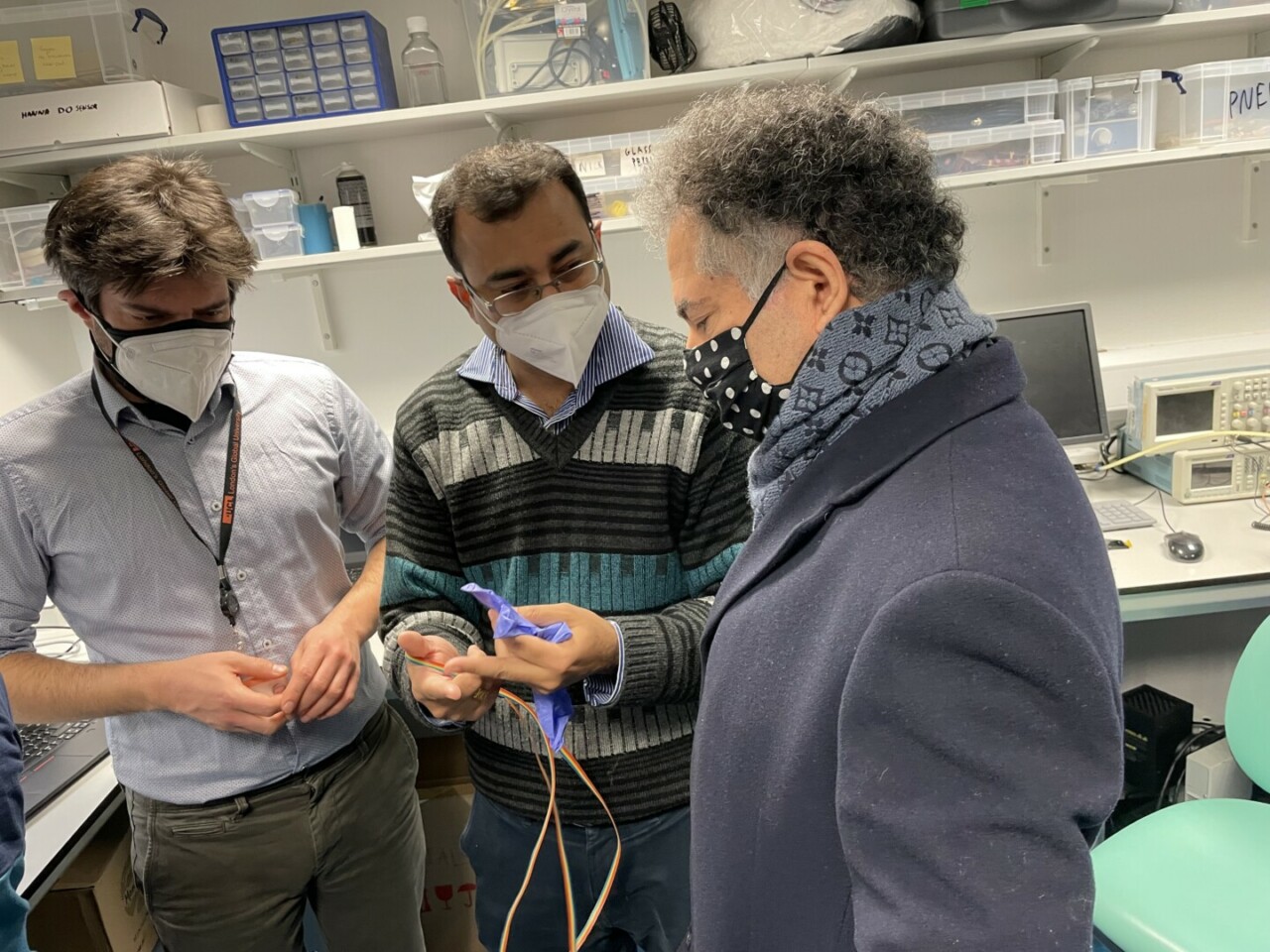
Professor Manish Tiwari (UCL) and Dr. Evangelos Mazomenos (UCL) demonstrating a haptic glove prototype for prostate palpations to Dr. Georgiadis.
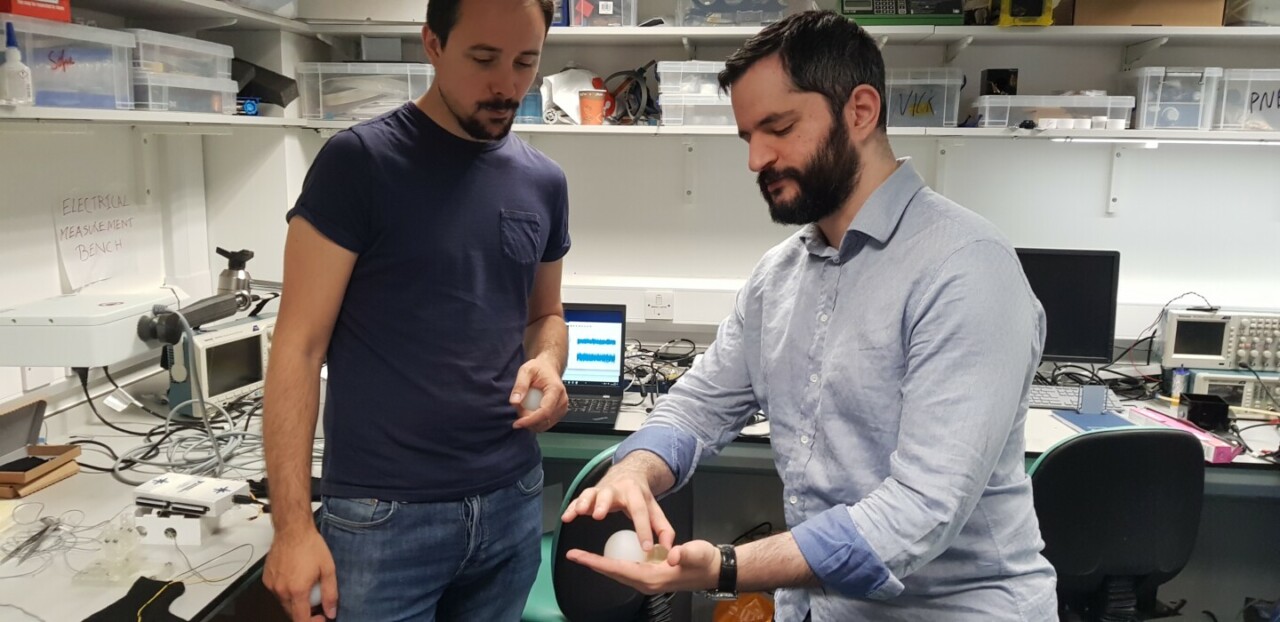
Dr. Agostino Stilli (UCL) and Antonios Georgiadis reviewing different types of prostate phantoms for lab testing.
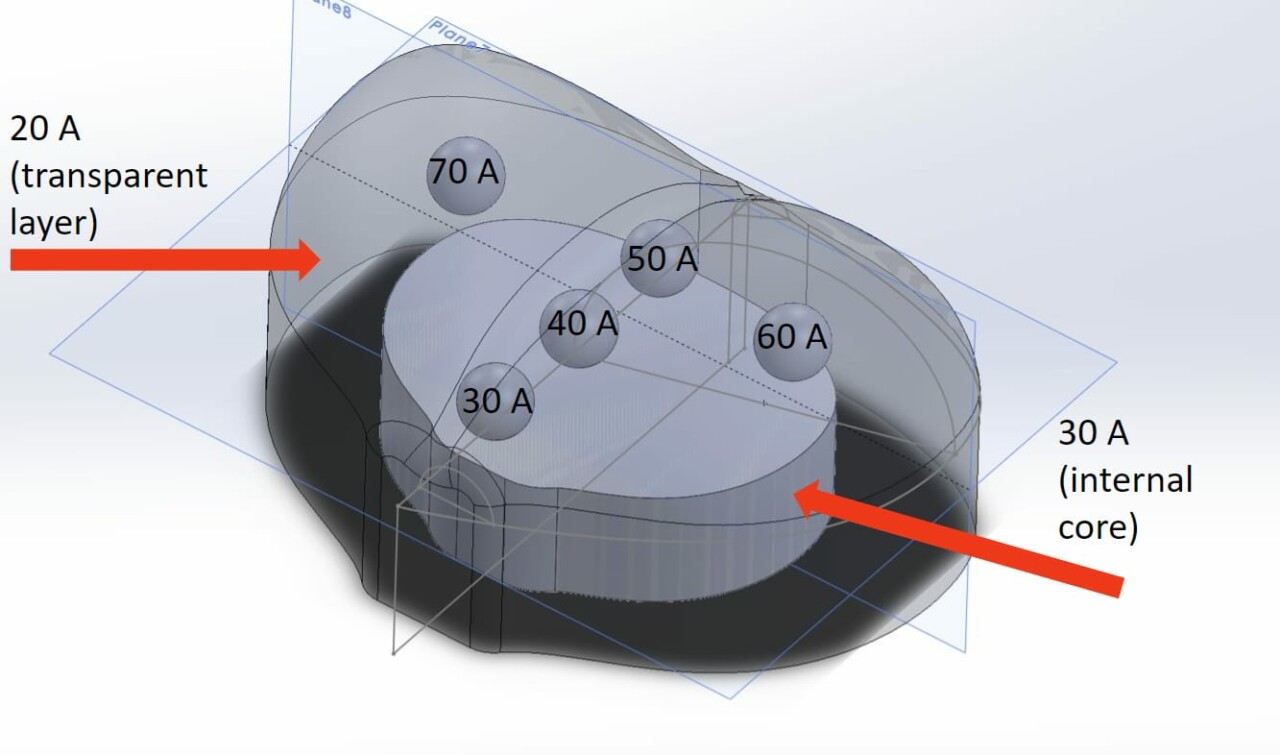
Prostate phantom design with internal “lesions” of varying degrees of hardness. These are meant to represent potential pre-cancerous and cancerous lesions caused by prostatitis.
The collaboration yielded remarkable results, as the haptic glove underwent rigorous testing in a laboratory setting using realistic prostate phantoms. The obtained data was subsequently processed by employing wavelets for denoising and advanced Machine Learning algorithms for pattern matching.
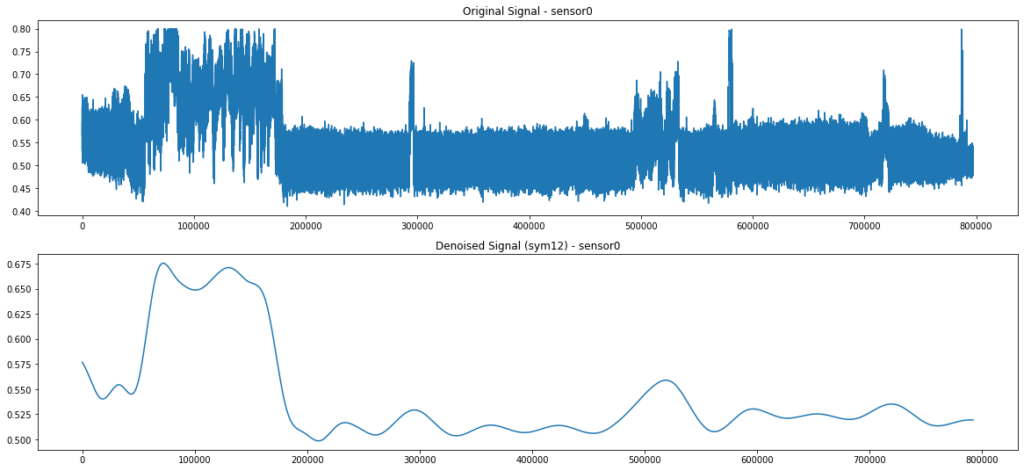
Denoised pressure signals of applying of a digital rectal examination (DRE) on a phantom. Different areas of the prostate have different stiffness profiles and require the appropriate pressure accordingly.
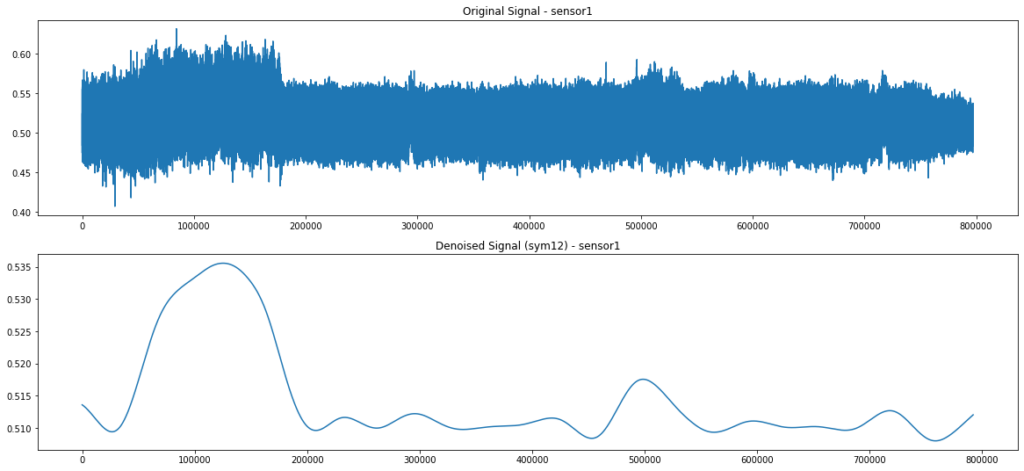
Denoised signals of applying diagnostic prostate pressures using a sensorized glove. The denoising is achieved using wavelets and the subsequent modelling is achieved via a Recurrent Neural Network (RNN).
Following the completion of necessary procedures, including ethics committee approvals, clinical use accreditation, and thorough clinical testing, the haptic glove will be made accessible to the broader research community. Its purpose will be to facilitate objective and anonymized data collection of prostate stiffness profiles, as well as prostate pressure or massage protocols.
By providing access to the haptic glove, researchers will have the opportunity to gather valuable data in a standardized manner, ensuring objectivity and anonymity. This will contribute to the advancement of knowledge regarding prostate health and aid in the development of improved diagnostic and treatment approaches.
Next steps: Medoron (Artificial Intelligence)
Building upon this successful collaboration, the team decided to embark on a joint venture by co-founding a company. Georgiadis Urology takes pride in its role as a co-founder of Medoron, an initiative that brings together UCL academics, MIT alumni, patients, and medical practitioners who share a common dedication to introducing a new level of objectivity to the existing landscape of prostatitis.
All products are expected to undergo through the appropriate peer review processes, medical tool accreditations and representative clinical trials. Over the course the following years, Georgiadis Urology is committed to academically publish its findings on prostatitis from over three decades, for the benefit, scrutiny and feedback of the wider male and urological community.
Medoron’s mission is to make prostatitis a curable disease for everyone worldwide, affordably and armed with objectivity and data-driven insights.
If you are interested in staying up to date with the above, please subscribe here.

